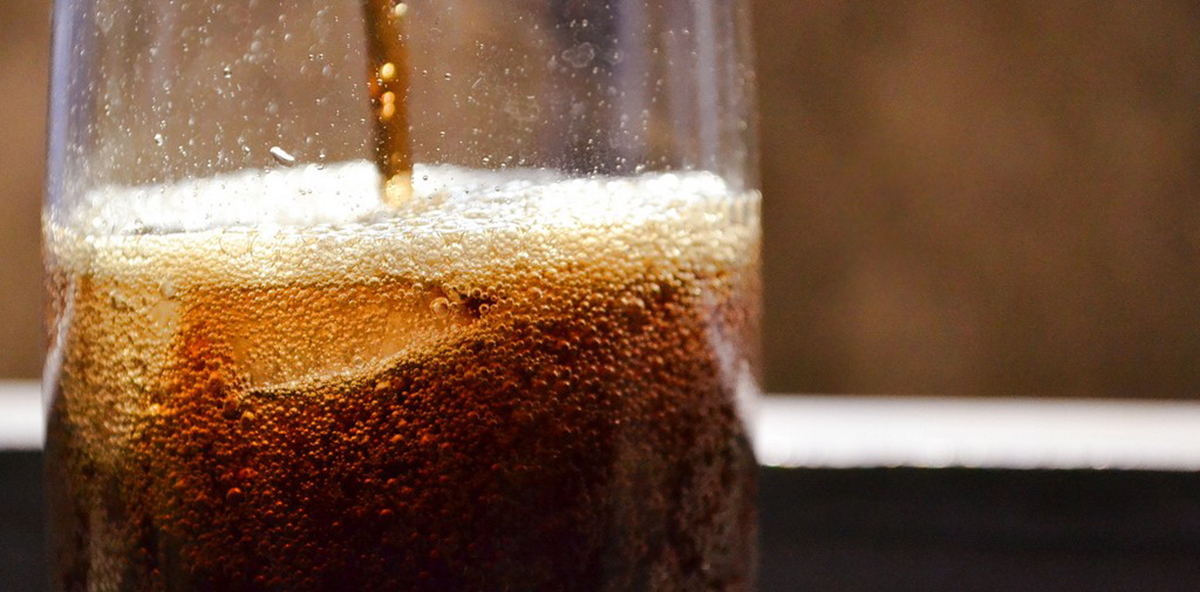The sweet modern diet
Our society has dramatically changed over time, for good and for bad. We certainly have developed amazing technology, we have surpassed boundaries that years ago were thought to be hard to reach, but we have also promoted environmental changes and the appearance of new diseases that are currently putting at stake not only the health of the population but also the economy and development of many countries worldwide.

Some of these diseases are strongly related with our life style, which is nowadays characterized by the consumption of highly processed foods, sugary drinks and a lack of physical exercise. Who would have thought that in just a few years more than 60% of adults in the U.S. and Europe would be considered to be obese? As a consequence of this, people are suffering from chronic diseases that are both expensive and detrimental, such as diabetes, heart disease and neurodegenerative diseases.
Diet is extremely important in these cases and it seems that soda and other soft beverages play a major role in the problem.
What are soft beverages made of?
Sugar-sweetened beverages, such as sodas, energetic beverages, teas and juices, are mainly sweetened with high-fructose corn syrup (HFCS)and glucose. Fructose is the natural sugar that is found in fruits and because it tastes sweeter than glucose, HFCS was developed to be used as a sweetener in the 1960’s.
Depending on the fructose content, HFCS can be 55% fructose/45% glucose, which is mainly used to sweeten sugary drinks and ice cream; or it can be 42% fructose/58% glucose, mainly present in baked food, canned fruit and dairy products.
Empty calories
The calories that you get from HFCS are considered to be “empty calories”.
See Also: Shocking Facts About Sodas
Unfortunately, according to a study performed in several brands of soft beverages, labels don´t always say the actual content of added sweeteners that the drink contains. The study showed that, for example, 12 ounces of Coke contained 38 grams of sugar, instead of the 30 grams that the company indicates in the label.
The Risks Of Drinking Soda
Sodas and sweetened beverages not only have no nutritional value, but they are also closely related to several diseases. As already mentioned, all the sugar that is contained in these type of drinks turns into fat, promoting weight gain, overweight and obesity.

Sugar is not so sweet to your metabolism
Overweight and obesity are closely related to other illnesses. There are several studies that have shown that soft beverages consumption is a risk factor for the development of diabetes, cardiovascular disease, hypertension and alterations of mental abilities.
Scientists have studied the relation between soda consumption and several illnesses for years, in children, adolescents and adults.
For instance, studies have found that children and adolescents with behavioral problems such as aggression and attention issues are avid consumers of soda and other sweetened beverages.
Here are some numbers for you to have an idea of the health risks of drinking soda and other soft drinks:
- In both, men and women that drink at least one can of soda per day, the risk of having a heart attack is 20% higher than for those that do not consume these products at all.
- In a similar case, the risk of having gout is 75% greater in soda drinkers than non-drinkers and in the case of developing type 2 diabetes, the risk is 26% greater.
- If this was not enough, the acidity of soda and sweetened beverages damages teeth and has also been related to osteoporosis.
These are certainly alarming statistics. Despite all this, some people believe that there is not enough evidence to blame it all on fructose content, not only in sugary beverages but also in processed foods in general.
What about diet soda?
Well, it seems that it is not as good as it sounds either. You could think that by drinking diet soda you avoid the calories and still enjoy their great taste, but this does not happen.
When you drink a diet Coke, your brain thinks it is actually getting something nutritious, but when it realizes the contrary, your brain gets confused and alters its response to sugar consumption, altering your metabolism.
See Also: 7 Surprising Reasons To Give Up Soda
In a study conducted by researchers in the Johns Hopkins Bloomberg School of Public Health, it was detected that adults who consumed diet soda tend to snack more and have greater body mass index (BMI) than those who drink regular soda. This may also be linked to how the brain responds to artificial sweeteners. So, be careful, you might be avoiding calories in your soda, but you may also be getting even more in the form of sugary foods.
Drinking soda and other sweetened beverages is fine, as long as you don´t make them an essential part of your diet. Even when it is still not known if soda is actually causing all these diseases, it does not make you any good either. Water or naturally flavored water is always a good option to filling your body with sugar and no nutrients at all.
- LAKHAN, S. E. & KIRCHGESSNER, A. 2013. The emerging role of dietary fructose in obesity and cognitive decline. Nutr J, 12, 114
- Quanhe Yang, Zefeng Zhang, Edward W. Gregg, W. Dana Flanders, Robert Merritt, Frank B. Hu. Added Sugar Intake and Cardiovascular Diseases Mortality Among US Adults. JAMA Internal Medicine, 2014
- Sara N. Bleich, Julia A. Wolfson, Sienna Vine and Y. Claire Wang. Diet Beverage Consumption and Caloric Intake Among US Adults Overall and by Body Weight. American Journal of Public Health, January 2014
- Shakira F. Suglia, Sara Solnick, and David Hemenway. Soft Drinks Consumption Is Associated with Behavior Problems in 5-Year-Olds. The Journal of Pediatrics, 2013
- VENTURA, E. E., DAVIS, J. N. & GORAN, M. I. 2011. Sugar content of popular sweetened beverages based on objective laboratory analysis: focus on fructose content. Obesity (Silver Spring), 19, 868-74.
- Photo courtesy of Tom Page by Flickr : www.flickr.com/photos/tompagenet/2486455101
- Photo courtesy of Soumyadeep Paul by Flickr : www.flickr.com/photos/soumya_p/7175740569

